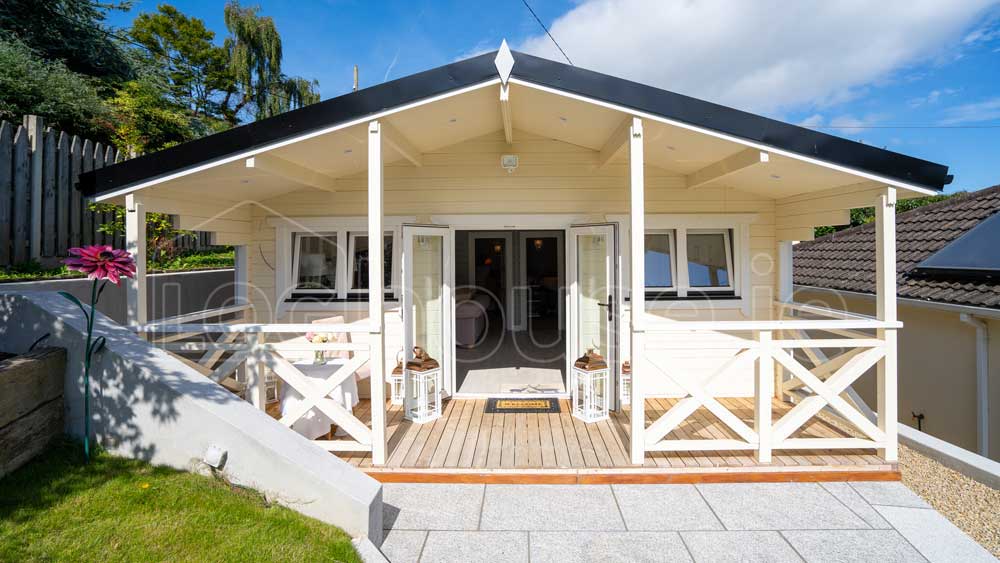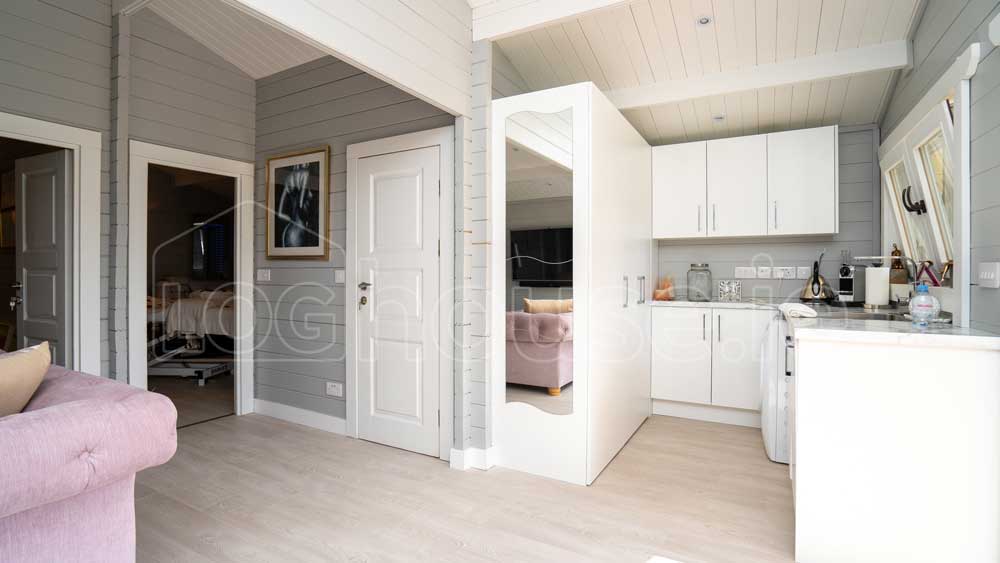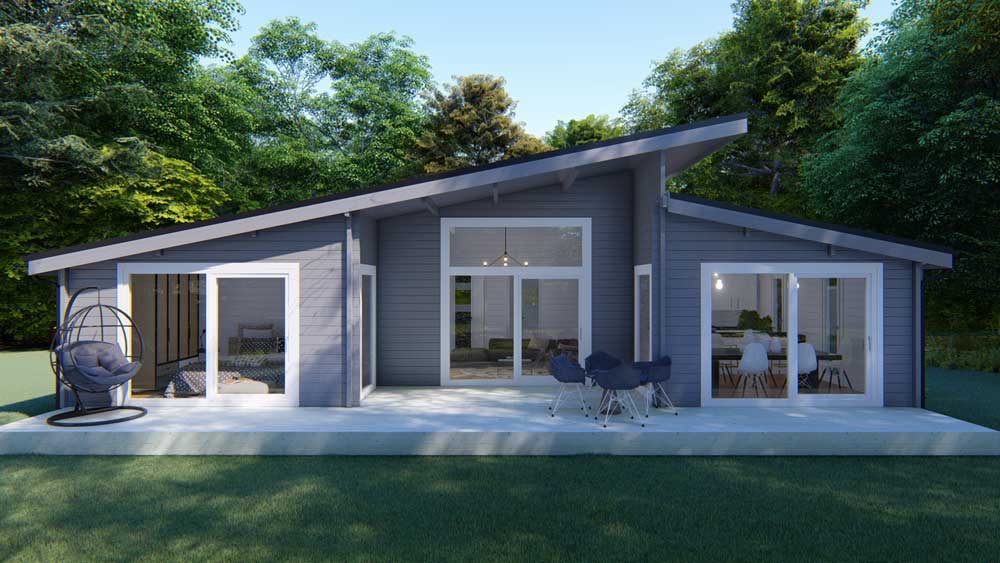The housing crisis and climate change are two pressing social concerns, impacting millions worldwide. As urbanisation and population growth continue, finding creative solutions to meet the housing needs of low-income families while reducing our carbon footprint becomes crucial. Loghouse, a leading provider of eco-friendly log cabins and garden rooms, offers an innovative approach that combines affordability and sustainability to address these challenges.
A Growing Housing Crisis
A seismic wave of demand for homes within reach of the average wallet has surged, rousing urban and suburban jungles teeming with population growth. Skyrocketing prices in the housing market have cast a long shadow over countless households, leaving many caught in a frenzied race against time to find a home, in a super competitive market, that doesn’t break the bank. This economic tempest has stirred a whirlpool of societal challenges – from cramped living conditions teetering on the edge of inhumanity to the chilling spectre of homelessness.
Governments, generous non-profit organizations, and forward-thinking private entities, united in purpose, are rolling up their sleeves to sketch blueprints of policies and ignite initiatives. They’re all fuelled by a shared mission: to create a wide, welcoming net of affordable housing solutions. Yet, the question remains — will these concerted efforts be enough to meet the swelling tide of demand and stem the crisis?
An All Too Familiar Challenge
As Ireland faces the challenge of retaining its talent and resources, as well as attracting new additions to the labour force from outside Ireland, who struggle to find affordable homes. Many individuals and families face their own common challenge – the difficulty of paying rent every month, while also trying to save for a mortgage. For many of these people, log cabin homes and residential garden rooms, could be a part of the solution. Evidence that can be found online, would indicate some families have been living in cabin homes and have found them to be legitimate and safe dwellings, full to the brim with the creature comforts found in a brick-and-mortar traditional house. While some of these families may be hesitant to discuss their choice of living in cabin homes for fear of drawing the attention of authorities and planners, many believe that these alternative housing options must be included in the national conversation on housing, as the crisis continues to worsen.
The Carbon Footprint Conundrum
Climate change remains one of the greatest threats facing humanity today, yet construction contributes up to 40% of total CO2 emissions worldwide and must do its part in mitigating greenhouse gas emissions to decrease its footprint on planet Earth. The construction industry must take on its role of mitigating emissions by cutting its CO2 output through reduced construction emissions.
Traditional construction techniques heavily depend on energy-consuming materials like concrete and steel; modern techniques have increasingly turned their attention towards using environmentally friendly, energy-efficient alternatives like bamboo and hemp instead.

Loghouse’s Innovative Solution: Eco-friendly, Affordable Housing
Loghouse is at the forefront of providing affordable, sustainable housing solutions that can help address both the housing crisis and the carbon footprint challenge. Their eco-friendly log cabins and garden rooms offer a unique approach to housing, utilizing natural, renewable materials and energy-efficient designs.
-
Sustainable Materials
Loghouse’s structures are primarily constructed from slow-growing Scandinavian pine, a renewable resource known for its strength, durability, and insulation properties. By using timber from responsibly managed forests, Loghouse ensures that their buildings have a low environmental impact, reducing CO2 emissions associated with traditional construction methods.
-
Energy Efficiency
Loghouse’s log cabins and garden rooms are highly energy-efficient, thanks to their insulation properties and the use of energy-saving features such as double-glazed windows and doors. By doing this, structures remain warm during winter and cool during summer, thus decreasing energy usage on heating/ac units as well as overall costs associated with them.
-
Modular and Customisable Designs
Loghouse offers various types and sizes of affordable housing units which can be customised based on the customer’s needs. This flexibility potentially allows Loghouse to cater to the diverse needs of many different types of individuals and families, offering solutions to suit a wide range of budgets and requirements.
-
Reduced Construction Time and Costs
The use of prefabricated components in Loghouse’s buildings significantly reduces construction time, which in turn lowers overall costs. These solutions enable more rapid and cost-efficient housing solutions that quickly meet the urgent demand for affordable homes in many communities.
-
Adaptable for Urban and Rural Settings
Loghouse’s log cabins and garden rooms are suitable for both urban and rural settings, providing affordable and sustainable housing solutions regardless of the location. This adaptability ensures that Loghouse’s structures can be integrated into various environments, contributing to the alleviation of the housing crisis in different contexts.
(More info on Garden Log Cabin Security)

Government Support and Initiatives
Recently, Fianna Fáil councillor William O’Leary mentioned that he had been contacted by constituents who had planning applications for log cabins refused in rural areas, but not next to forests. Fine Gael councillor John Paul O’Shea, who leads his party on the council, agreed with Mr. O’Leary, saying he and several other local representatives have had an increasing number of people approaching them about building such properties.
Council chief executive Tim Lucey acknowledged that it was worth examining. “It’s necessary for us to have a serious discussion around this,” he said. Michael Lynch, the council’s director of planning, also mentioned that his unit is prepared to look into it. These comments signal a growing interest from government officials in supporting initiatives that provide affordable, sustainable housing solutions like those offered by Loghouse.
Collaboration for a Sustainable Future
As demand for affordable housing and the need to reduce carbon emissions continues to be pressing social issues, collaboration among government, the private sector and the general public will become ever more vital in finding viable solutions. Loghouse’s log cabins and garden rooms present a promising opportunity to tackle both issues simultaneously.
-
Government Policies and Incentives
To promote the adoption of eco-friendly housing solutions, governments can implement policies and incentives that encourage the construction and use of log cabins and garden rooms. These can include tax breaks, grants, and streamlined planning processes for projects that meet specific sustainability criteria.
-
Public-Private Partnerships
Collaboration between the government and private companies like Loghouse can foster innovation and ensure that affordable, eco-friendly housing solutions are developed and made widely available. Public-private partnerships can help facilitate investment, knowledge sharing, and the pooling of resources to overcome obstacles and drive progress in addressing the housing crisis and reducing carbon emissions.
-
Community Engagement
Involving local communities at all stages of these projects, such as the planning, design and development, can help ensure that these initiatives are responsive to the unique needs and priorities of the people they serve. Engaging with residents and stakeholders can promote pride of ownership for projects, increasing support and long-term success.
-
Education and Awareness
Raising awareness about the benefits of eco-friendly housing solutions like log cabins and garden rooms is crucial in promoting their adoption. Providing information about the environmental, economic and social advantages of using residential log cabins and garden rooms as an affordable option, can change public attitudes toward them and inspire more people to consider them as viable housing solutions. The affordable housing crisis and the need to reduce our carbon footprint are complex, intertwined issues that require innovative solutions.
The affordable housing crisis and the need to reduce our carbon footprint are complex, intertwined issues that require innovative solutions. Loghouse’s log cabins and garden rooms offer a promising approach that addresses both challenges by providing affordable, sustainable housing options that can be tailored to the diverse needs of individuals and families. With the support of government policies, public-private partnerships, community engagement, and education, these eco-friendly housing solutions could play a significant role in helping to alleviate the housing crisis and protect our planet for future generations.



Leave A Comment